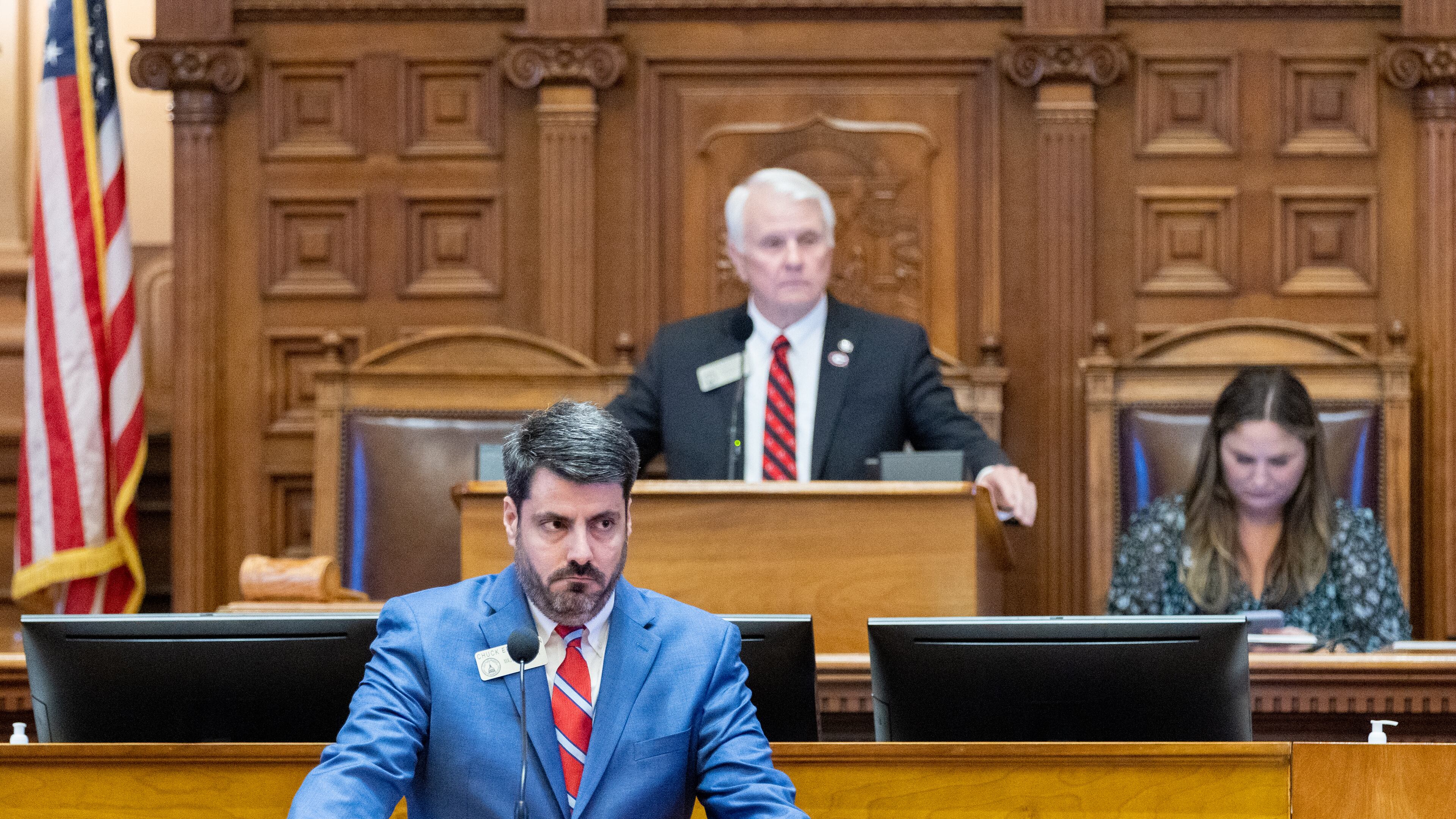Georgia legislators pass rules on shielding their speech

Rules that assert Georgia lawmakers enjoy “legislative privilege” from being compelled to testify in court proceedings passed both chambers of the General Assembly on Tuesday along a mostly party-line vote, with nearly all Democrats voting against the change and nearly all Republicans voting in favor.
House Majority Leader Chuck Efstration said new rules clarify when conversations among legislators are shielded from public disclosure, a protection rooted in the Georgia Constitution.
The General Assembly long ago exempted itself from the state’s Open Records Act that all other government officials must obey, a statute designed to ensure the public knows what its elected officials are doing. The Legislature in recent years has gone to court to avoid having to release General Assembly documents.
Republican leaders emphasized that the rules don’t add new protections, but legislators updated the rules after several lawmakers claimed they were immune from subpoenas to testify to a Fulton County grand jury’s investigation of former President Donald Trump.
“Legislative privilege has existed for over 100 years. It is constitutional and doesn’t need to be in our rules to be exercised or recognized,” said Efstration, a Republican from Dacula. “Legislative privilege really boils down to separation of powers and the ability for legislators to take confidence in having free and open discussions amongst each other.”
The House voted to pass the new rules 94-77, along a nearly party-line vote. Identical language passed the Senate 31-21, with all but one Democrat voting against the rules.
This was the second time the Senate tried to pass this session’s rules after Democrats voted against the resolution on Monday and absences from Republican members caused the measure to fail by one vote.
Senate Democratic Whip Harold Jones of Augusta said the chamber needed to consider the changes to the rules in full context, citing ongoing investigations at the local and federal level into attempts to overturn the 2020 presidential election in Georgia.
Efstration told reporters after the vote that he didn’t propose the rule in response to disclosure of legislators’ conversations to the special grand jury that examined whether Trump interfered in the 2020 presidential election.
Senate Majority Leader Steve Gooch, R-Dahlonega, didn’t address the investigations.
Jones said some lawmakers “are actually waiving legislative privilege, potentially, to testify (in) those particular (proceedings).”
“So the question becomes, will this impact that? The answer may be no, but that answer really has not been given,” he said. “So if you want to waive that (privilege) and we change this language, does that impact the members’ ability to be able to testify in these kinds of cases?”
Jones said while the caucus had various other issues with the rules, he said its major concern was that the group was not involved in the drafting of the rules.
“I would hope that the ‘no’ votes that are given today are not looked at as trying to unnecessarily complicate the process, they’re not trying to embarrass anything,” he said. “The ‘no’ votes that are given to me are basically a request that from this point forward we start working collaboratively, especially on issues that affect the whole body.”
Gooch, however, said representatives from Senate President Pro Tem John F. Kennedy’s office met with Senate Democratic Leader Gloria Butler once before Monday’s vote and again in the days since.
The updated rules will govern each chamber for the next two years.




